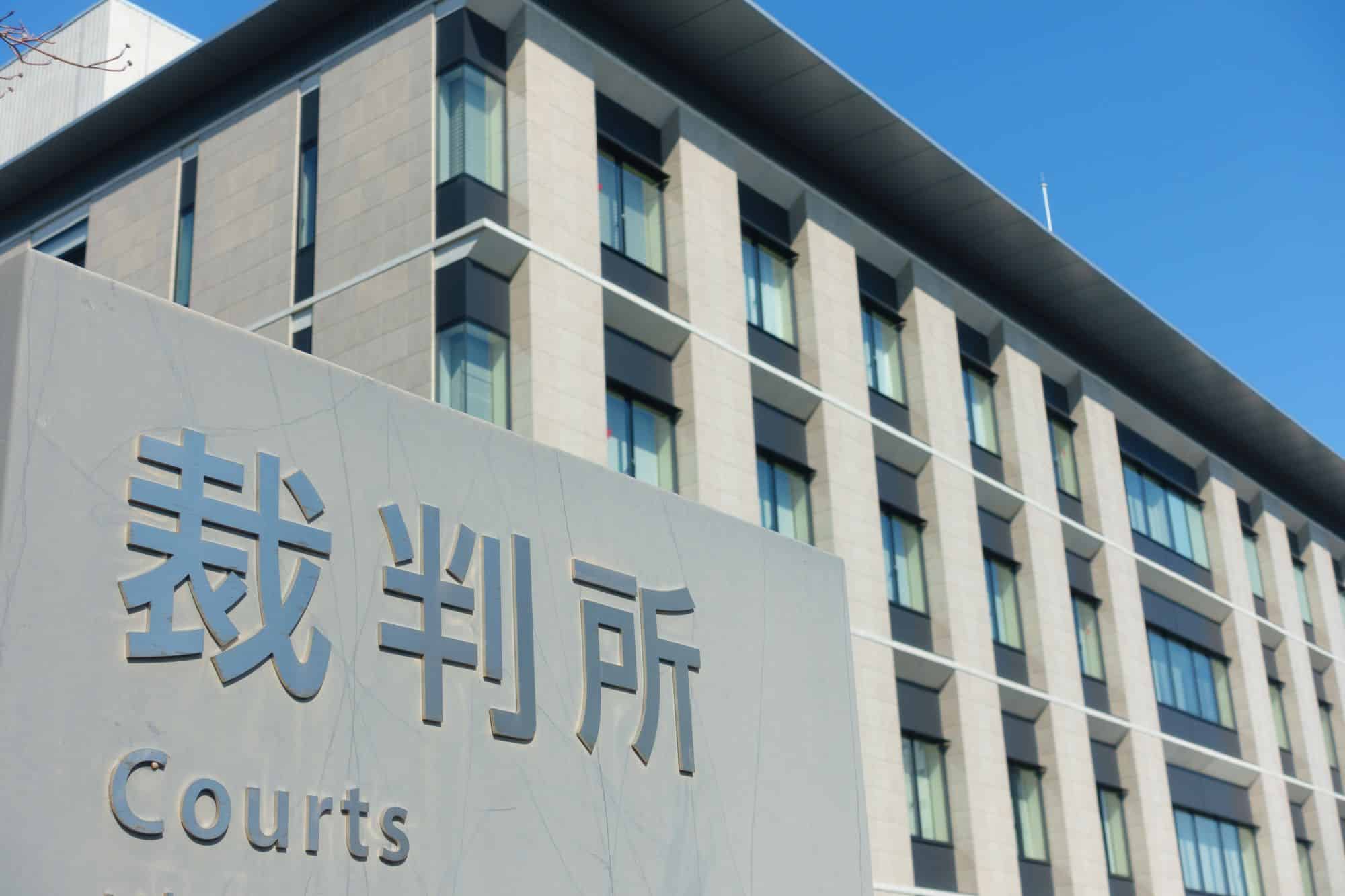What is the Jurisdictional Court for Litigation and Provisional Dispositions Related to Reputational Damage?

There is a question that arises in all legal matters, not limited to internet-related issues, about “which regional court will handle the case if it is resolved through the court (via litigation or provisional measures)”. This issue is referred to in legal terms as “jurisdiction”.
For example, our firm is a law firm located in Tokyo. We can easily reach the Tokyo District Court by train, but if the case is handled in courts in Osaka or Nagoya, we inevitably incur travel expenses. Furthermore, many law firms, including ours, charge a “daily rate” to cover the time spent traveling when handling cases in distant courts. It is better for both the lawyer and the client if the proceedings can be conducted in the Tokyo District Court as much as possible.
Can lawsuits and provisional measures related to online reputation damage, such as deletion, and requests for disclosure of IP addresses and personal information, be handled in the Tokyo District Court? We will explain the concept of “jurisdiction”.
International Jurisdiction and Domestic Jurisdiction
Regarding this concept of “jurisdictional courts”, there are two main issues:
- The question of whether Japanese courts can handle the trial or provisional measures in the first place (International Jurisdiction)
- If Japanese courts can handle it, the question arises as to whether it would be, for example, the Tokyo District Court or the Osaka District Court (Territorial Jurisdiction within Domestic Jurisdiction)
This article will explain the latter. The former is explained in a separate article.
https://monolith.law/reputation/against-facebook-amazon[ja]
Types of Provisional Dispositions and Lawsuits Related to Reputational Damage Management on the Internet

Firstly, there are three main types of provisional dispositions and lawsuits related to reputational damage management on the Internet.
- Post deletion
- Request for disclosure of sender’s information (Request for disclosure of IP address, name and address)
- Claim for damages (Claim for damages after identifying the poster)
We provide a detailed explanation about these relationships and the general flow in a separate article.
https://monolith.law/reputation/identifying-contributors-after-deletion[ja]
These can be divided into two categories in relation to the “jurisdictional court”:
- Post deletion and claim for damages
- Request for disclosure of sender’s information
The “post deletion” and “claim for damages” fall under the same jurisdictional court, while the “request for disclosure of sender’s information” is separate. We will explain each of these in order.
Jurisdiction for Post Deletion and Damage Compensation Claims
Firstly, in the case of post deletion or damage compensation claims, you can choose between the jurisdiction of the “plaintiff (creditor)” and the “defendant (debtor)”. This might be a bit confusing, but in a lawsuit, the “plaintiff” is referred to as the “creditor” in provisional disposition procedures, and the “defendant” is referred to as the “debtor”. In essence, it’s about the party filing the lawsuit and the party being sued.
Jurisdiction of the Plaintiff (Creditor)
This refers to the jurisdiction based on the circumstances of the party filing the lawsuit, i.e., the party requesting the deletion of the post or claiming damages.
This simply corresponds to the domicile of the party requesting the deletion of the post or claiming damages. For example,
- If an individual lives (or more precisely, has their registered address) in Tokyo, it would be the Tokyo District Court
- If a corporation has its head office in Tokyo, it would be the Tokyo District Court
- If a corporation has its head office in Yokohama, it would be the Yokohama District Court
And so on.
Jurisdiction of the Defendant (Debtor)
This refers to the jurisdiction based on the circumstances of the party being sued, i.e., the party from whom the deletion of the post or damages is being claimed. In the case of a damage compensation claim, it is usually the “person who wrote the article”. In the case of post deletion, it would be the person who has the right and obligation to delete the article, for example,
- The person who wrote the article
- If the article is a comment on a bulletin board, the bulletin board administrator
- If the article is on a site on a rental server, the server administrator
And so on.
If these are domestic individuals or domestic corporations, the court of their domicile, as mentioned above, will have jurisdiction.
For foreign corporations, it’s a bit complicated, but
- If they have a main office or business office in Japan → The court of the location of the main office or business office in Japan
- If they have a representative or other main business person in Japan → The court of the domicile of the representative or other main business person in Japan
Would have jurisdiction.
If neither of these exist, there is no jurisdiction on the defendant (debtor) side, and the lawsuit can only be conducted in the jurisdiction of the plaintiff (creditor).
Summary
Based on the above, the following examples can be given:
If an individual in Tokyo demands the deletion of a posted article from a server company in Osaka
- From the perspective of the plaintiff (creditor), the Tokyo District Court
- From the perspective of the defendant (debtor), the Osaka District Court
- Therefore, either the Tokyo District Court or the Osaka District Court would be acceptable
If a corporation in Saitama Prefecture makes a damage compensation claim against an individual in Nagoya
- From the perspective of the plaintiff (creditor), the Saitama District Court
- From the perspective of the defendant (debtor), the Nagoya District Court
- Therefore, either the Saitama District Court or the Nagoya District Court would be acceptable
If a corporation in Saitama Prefecture demands the deletion of a posted article from a foreign corporation that does not have an office, business office, representative, or business person in Japan
- From the perspective of the plaintiff (creditor), the Saitama District Court
- From the perspective of the defendant (debtor), no jurisdiction
- Therefore, only the Saitama District Court would be acceptable
Jurisdiction for Disclosure Requests of Sender Information
In cases where you are requesting the disclosure of a poster’s IP address, name, and address from a server or provider, you cannot use the ‘plaintiff (creditor) jurisdiction’. In other words, you can only use the court that corresponds to the ‘defendant (debtor) jurisdiction’.
https://monolith.law/reputation/provider-liability-limitation-law[ja]
If the defendant (debtor) is a domestic individual or corporation, the court of the defendant’s domicile will be used, as mentioned above.
For foreign corporations, the basic principle is the same, but there are slight differences.
- If the main office or business office is located in Japan → The court of the location of the main office or business office in Japan
- If there is a representative or other main business person in Japan → The court of the domicile of the representative or other main business person in Japan
- If neither exists → The Tokyo District Court, as a case of ‘undefined jurisdiction’
There is a rule that ‘if neither exists, it is okay to use the Tokyo District Court’.
Simultaneously Requesting Post Deletion, Damages, and Disclosure of Sender Information

In addition to the rules mentioned above, what happens when you simultaneously request post deletion, damages, and disclosure of sender information?
This involves the rules of “provisional disposition”. Firstly, you cannot request damages in a provisional disposition. Provisional dispositions are quick procedures, and are only used in situations where quick action is required, such as:
- When damages occur daily due to illegal posts if they are not promptly removed
- When the logs held by the provider will disappear if the IP address is not promptly disclosed
Claims for damages do not fall under these categories.
Jurisdiction in the Case of a Lawsuit
In a lawsuit, you can consolidate all claims and file them at once in a court that has jurisdiction over at least one of the multiple claims. For example:
When an individual in Tokyo requests post deletion and disclosure of sender information from a server company in Osaka
- The Tokyo District Court has jurisdiction over the post deletion
- Only the Osaka District Court has jurisdiction over the request for disclosure of sender information
- Therefore, you can request post deletion and disclosure of sender information in one lawsuit at the Tokyo District Court
When an individual in Osaka Prefecture requests disclosure of sender information and damages from a foreign corporation that does not have a main office or person in charge in Japan
- The Tokyo District Court has jurisdiction over the request for disclosure of sender information
- The Osaka District Court has jurisdiction over the claim for damages
- Therefore, you can request disclosure of sender information and damages in one lawsuit at the Tokyo District Court
This is how it works.
Jurisdiction in the Case of a Provisional Disposition
In contrast, in the case of a provisional disposition, there is no rule that “you can consolidate all claims and file them at once in a court that has jurisdiction over at least one of the multiple claims”. Therefore:
- Post deletion follows the jurisdiction for post deletion
- The request for disclosure of sender information follows the jurisdiction for the request for disclosure of sender information
- If the above two coincide by chance, you can request post deletion and disclosure of sender information in one procedure at that court
This is how it works.
https://monolith.law/reputation/provisional-disposition[ja]
So,
When an individual in Tokyo requests post deletion and disclosure of sender information from a server company in Osaka
- The Tokyo District Court and Osaka District Court have jurisdiction over the post deletion
- However, the Tokyo District Court does not have jurisdiction over the request for disclosure of sender information, and only the Osaka District Court has jurisdiction
- Therefore, since only the Osaka District Court has jurisdiction over both, if you want to request both in one provisional disposition, you need to use the Osaka District Court
When an individual in Osaka Prefecture requests post deletion and disclosure of sender information from a foreign corporation that does not have a main office or person in charge in Japan
- Only the Osaka District Court has jurisdiction over the post deletion
- Only the Tokyo District Court has jurisdiction over the request for disclosure of sender information
- Therefore, you cannot request both in one procedure
This is how it works.
Summary
As discussed above, the rules of jurisdiction are incredibly complex. In addition to the complexity of the rules themselves, specific information about foreign corporations such as Google, Facebook, Twitter, and FC2, for example,
- Principal offices or branches in Japan
- Representatives or other main business handlers in Japan
is information held as ‘know-how’ by lawyers who handle a large number of reputation damage control cases. It can be said that it is a difficult issue to judge unless you are a lawyer who handles a large number of such lawsuits and provisional dispositions.
Category: Internet





















